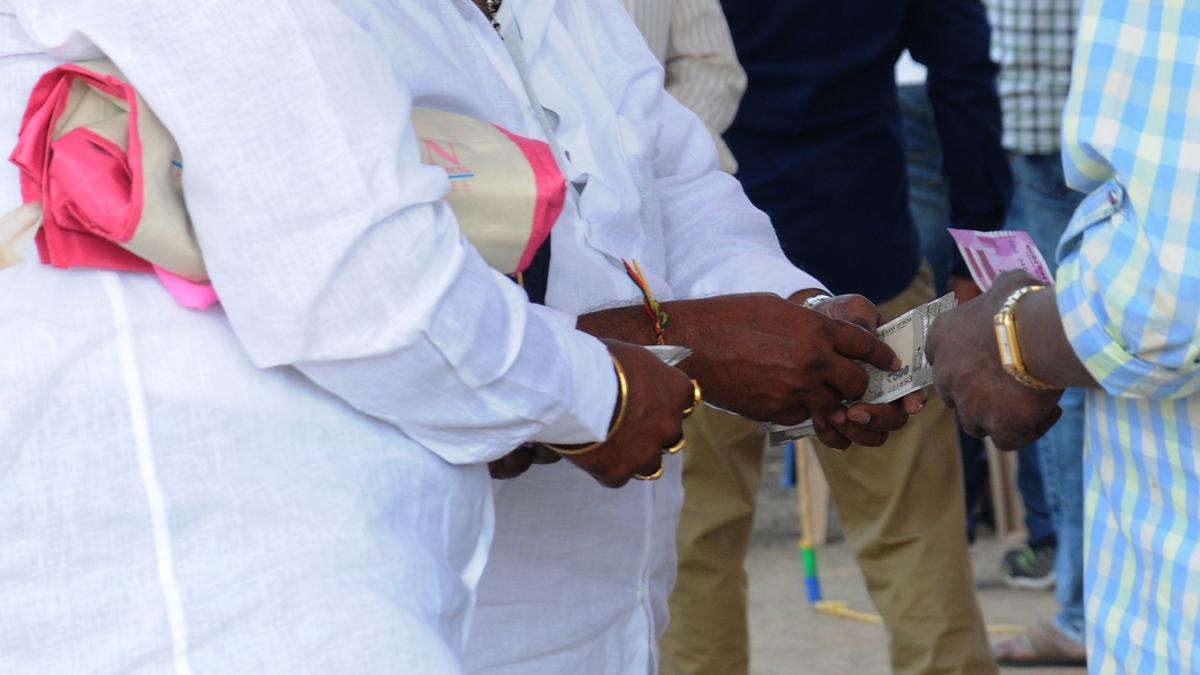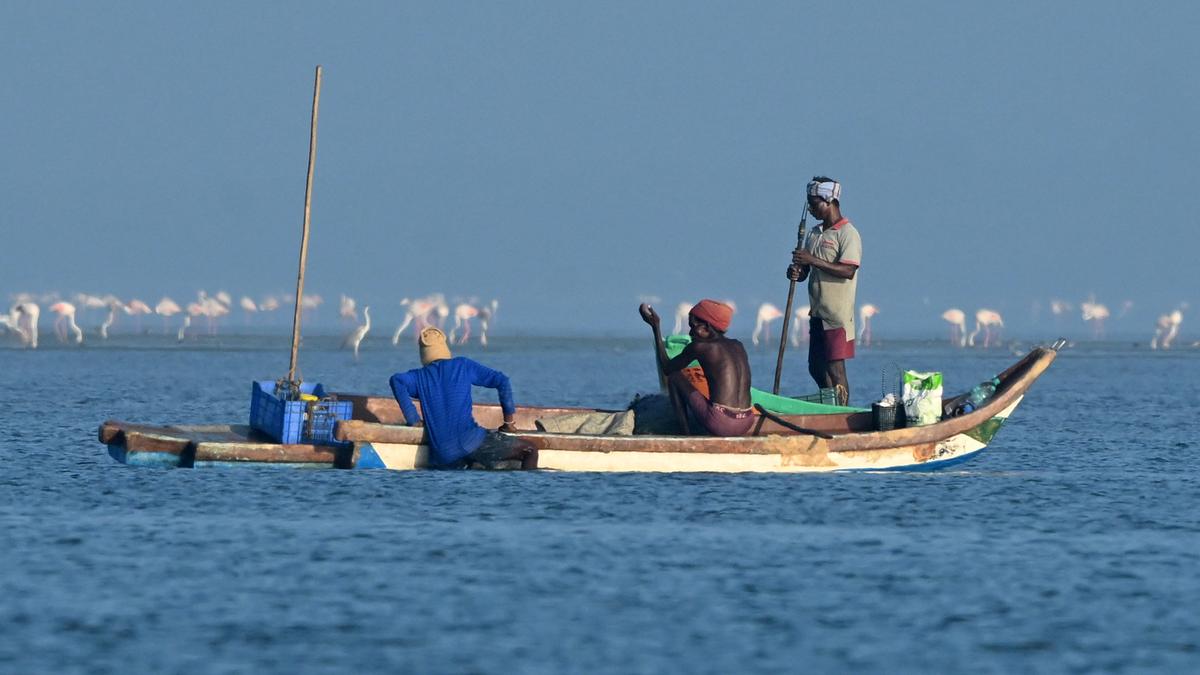Rahul Gandhi's initiatives: Allocation of funds for tribal regions, healthcare, and education accessibility.
Published: 25 Apr 2024, 6:51 PM IST

i
"I have seen Rahul Gandhi before. But it's been a while since he has come to our place," 48-year-old Madambi, a resident of Muthanga, a tribal village in Kerala's Wayanad, fondly recalled to The Quint.
Generally known for its cool weather even in the summer, Muthanga was experiencing a hot day when we met Madambi, who was dressed in a nightgown. She has been working at a hotel for the past five months, a few kilometres away from her colony. She commutes either by walking through the forest or by bus.

Madambi.
(Photo: Alenjith K Johny)
Her husband, like many others, goes for NREGA work when available.
Manoj, her 24-year-old son, told The Quint, "The work is less now. My father is currently working as a forest guard for fire prevention, earning around Rs 20,000, but the risk is high."
Moreover, living in a region where human-wildlife conflict is widespread is no easy task, she said. "Even last time, I saw two to three elephants on the way to the river. This has become a common sight..."
The Wayanad Lok Sabha constituency, which is going to polls in the second phase on 26 April, comprises parts of Kozhikode and Malappuram districts and a majority of Wayanad district.
As sitting MP Rahul Gandhi seeks re-election from the constituency, where he is facing the Left's Annie Raja and the BJP's K Surendran, The Quint spoke to tribals and went through Right to Information (RTI) responses to understand whether their lives have improved over the last five years.
How Were MP Funds Allocated?
According to an RTI reply from the District Collectorate Office on 2 January, Gandhi spent nearly Rs 5 crore in the Wayanad district, out of the total Rs 17.21 crore of his MP fund for the constituency until the end of 2023. The amount is only 30 percent of the total spent in the constituency.
The funds were spent on 40 different works from 2020 to 2023, including the purchase of hospital equipment, low mast lights at multiple spots, buses to schools, and four-wheelers to community health centres. Funds used in tribal regions, especially in colonies, include a drinking water project, a jeep and physiotherapy equipment for a family health centre, and HT installation at another health centre.
The projects in tribal regions cost less than 20 percent of the total funds used in the district, the RTI revealed.
As of January 2024, the Members of Parliament Local Area Development Scheme (MPLADS) fund expenditure in the Wayanad district alone amounted to Rs 6 crore, the highest among the regions covered by the Wayanad constituency, in comparison to Malappuram and Kozhikode.
Education Still Inaccessible
Noolpuzha panchayat is spread across 17 wards with 213 colonies having 75 percent land under forest. The colonies have a population of 12,836 from 3,577 families, with the majority belonging to the Paniya community, spread across 90 colonies.
"During Indira Gandhi's period, the prices of everyday items like rice were all cheaper. Now, rates have doubled in the last 10 years," observed Chukkan, a 61-year-old tribal resident.
Chukkan can no longer work as he did in his younger days at the estates in Kodagu in the neighbouring state of Karnataka. His struggles as a widower to raise his son, who had to drop out of school after Class 4, mirror the harsh realities faced by many in the tribal communities. Chukkan, too, didn't complete his primary education.

Chukkan, who is in his 60s, no longer goes to work.
(Photo: Alenjith K Johny)
However, a significant proportion, 25.7 percent of the parents, had never attended school. The survey also found that an overwhelming majority, 93 percent (382 out of 411), of the fathers worked as daily wage labourers, indicative of the economic vulnerabilities faced by these tribal communities.
"We didn't even have phones then, so it was hard to know what was happening at home," Chukkan recalled. "My son stayed with his mother's sister who lived in the same colony, until he grew up and started taking up work at the age of 20. He goes for daily wage work now. He is 31 years old."
"Some things have changed now, like new roads and homes built, but many things remain the same," he added, underscoring the persisting challenges.
Around a kilometre away from Chukkan's colony is the Kattunaikka colony, which has benefited from a new drinking water project funded through Rahul Gandhi's MP allocation.
Drinking Water Facilities
In August 2021, Rahul Gandhi inaugurated a drinking water facility in Ponkuzhi Kattunaikka ST colony of Noolpuzha panchayat. The project, a joint venture funded by the Sulthan Bathery Tribal Development Office corpus and Gandhi's MPLADS, comprised a 300 mm bore well, a pump house, and a 15,000-liter water tank.
"One family has to pay at least Rs 50 a month for electricity charges to run the motor," said Madhan, 62, a resident. "The motor is switched on at least twice or thrice a week. We collect the water in pots. My family of five can manage with that water. There is a tap where we collect the water."
Madhan recalled the previous challenges, "Earlier, we used to walk towards the nearby river and take that water for drinking, but the quality wasn't good. Now we have safe drinking water."
However, Madhan acknowledged that the colony still faces other issues. "I wouldn't say this is it, one water project won't solve our problems. There are other problems too in the colony, and work remains a major one. We don't have enough daily wage work or strong homes without leakage during the rainy season."
According to Madhan's 21-year-old grandson Mani, "The water project has solved one concern of the families here. But concerns change along the seasons. The rain is almost here, now the concern is of water leakages inside the houses. We get tarpaulin sheets covered on our roofs."
A Different Reality Just a Kilometre Away
Forty-six-year-old Chandran, one of the residents of a Paniya colony in the same region just a kilometre away from the Ponkuzhi Kattunaikka ST colony, paints a contrasting picture. This colony, home to almost 30 families, lacks access to clean drinking water.
"The water we get in our colony is not clean. It's not drinkable," Chandran said. "I have a daughter in 4th standard. How can I give her this water? There's no guarantee that she won't fall sick tomorrow, but what other option do we have?"

Chandran, who works at a temple in Ponkuzhi.
(Photo: Alenjith K Johny)
Chandran's brother, Shekheran, aged 46, said, "We have not received any benefits. All the electric fences are broken. We hardly venture out after 6 pm. We have to make sounds to scare away wild animals, but sometimes even that doesn't work, so we stay at home."
Unlike the Kattunaika community, Shekheran does not engage in honey gathering, which typically starts in February and ends in May. "We are not trained for honey collection, as the Kattunaika community mostly does it," he said. "I usually go for work in the estates of Kodagu."
Kodagu is a common destination for many from the region who seek employment in coffee, ginger, and pepper plantations due to the lack of work opportunities locally. However, Shekheran added, "The coffee and pepper season is over."

Fences broken by wild animals at the Ponkuzhi Paniya colony.
(Photo: Alenjith K Johny)
Funding for Healthcare Access
Noolpuzha Family Health Centre, located close to many tribal colonies of Noolpuzha panchayat, has received funding from Rahul Gandhi's MPLADS. The health centre was selected twice in 2022 for the National Quality Assurance Certification, granted Rs 10 lakh for a Robotic Rehab device and a Rehab Treadmill through MPLADS funds, according to RTI data.
Similarly, in another project under MPLADS, a four-wheel-drive Mahindra Thar vehicle was contributed to aid in reaching remote areas.

According to Sanu Chandran, the technical assistant of Noolpuzha FHC, "the vehicle has made it easier for the doctor and staff nurse to reach the people, without before hiring a jeep."
However, the residents of the colonies The Quint visited expressed concerns about accessing the medical camps.
"We go to work in the morning and come in the evening. The camps happen in the mornings, so we do miss them. If we have less work, we stay at home. That's when we meet them," said one of the residents from a colony near Muthanga.
(At The Quint, we are answerable only to our audience. Play an active role in shaping our journalism by becoming a member. Because the truth is worth it.)

 1 week ago
133
1 week ago
133


